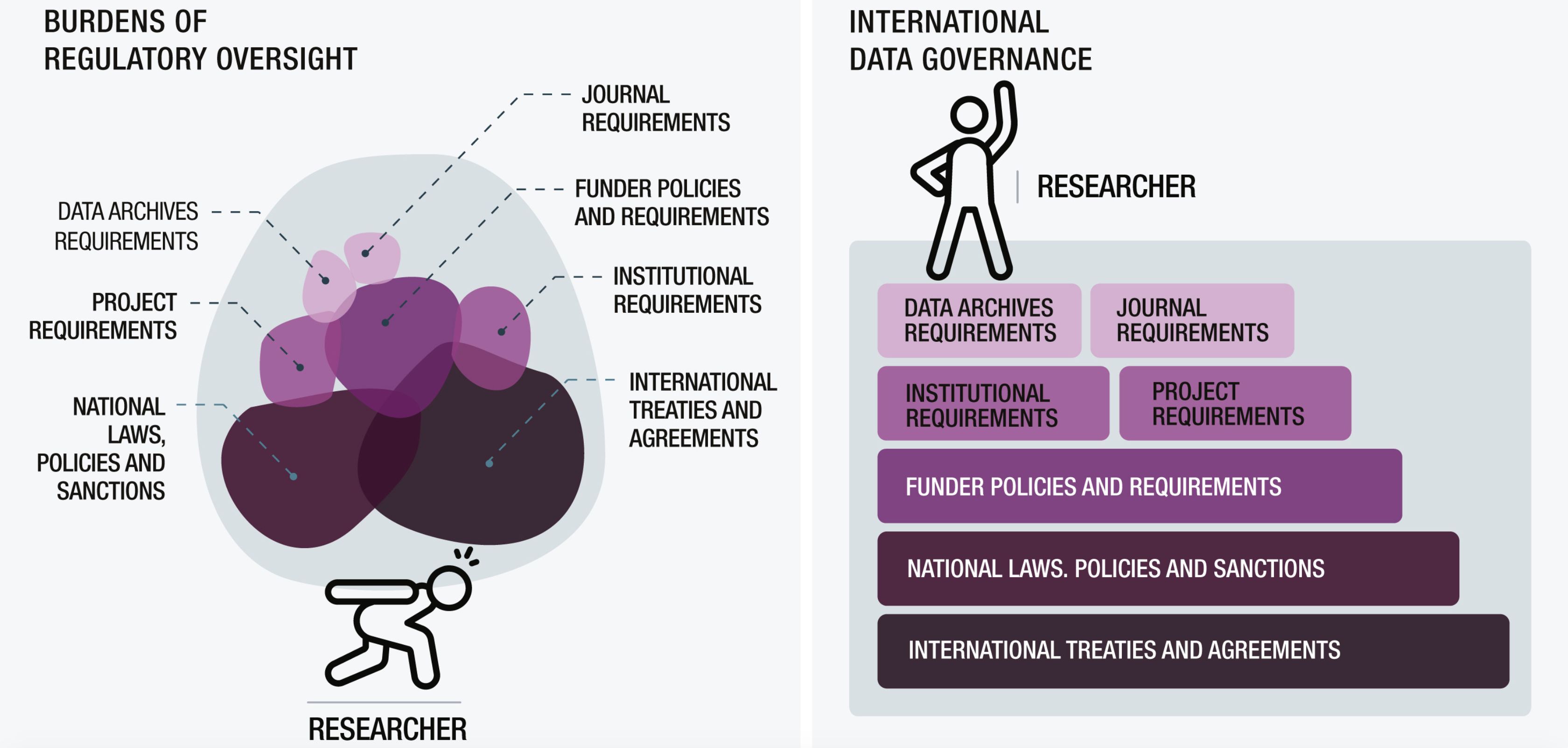
Why neuroscience needs international data governance

The advance of research and innovation in neuroscience can be partly attributed to the growing availability of quality data. However, as research communities and projects transcend borders, the challenges around data governance become greater. They are not only technical in nature but also economic, ethical, and legal.

Credit: International Brain Initiative
To tackle these challenges, the paper lays out a set of principles and considerations towards mitigating the gaps and leveraging the opportunities of a growing brain research ecosystem. It also highlights the need for clear practical guidance, tools, and an international data governance framework that can provide solid ethical and legal guidelines to researchers as regulation tightens. The paper's specific recommendations are:
- Make International data governance a priority: IDG should not be an afterthought
- Develop principles for international data governance.
- Develop practical tools and guidance for streamlined IDG
- Increase awareness and education on IDG
Established organisations like the International Brain Initiative (IBI) and the International Neuroinformatics Coordinating Facility (INCF) are expected to facilitate the discussions towards an international data governance scheme for neuroscience. The EBRAINS research infrastructure will also play an important role in helping to build the tools, models, and standards that can facilitate the sharing of data among across the EU and beyond.
News & events
All news & events- User stories07 Jan 2025

- Science and technology20 Dec 2024


- News20 Dec 2024
